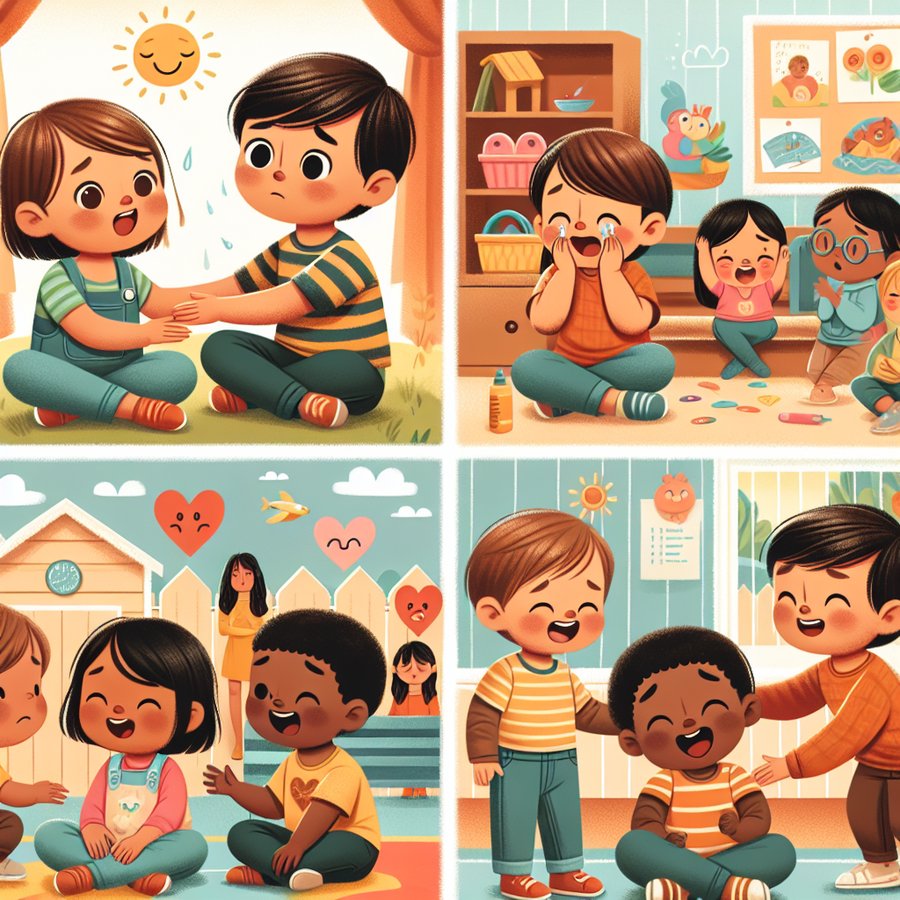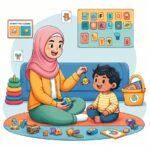Recognizing and supporting the milestones for understanding emotions in toddlers is crucial for their overall development. As parents and caregivers, it’s essential to be aware of these milestones, as they provide insights into your child’s emotional growth and wellbeing. This comprehensive guide will explore these milestones, offering strategies to support your toddler through their emotional development journey.
Milestones for Understanding Emotions in Toddlers
Understanding the milestones for understanding emotions in toddlers is the first step in nurturing their emotional intelligence. From recognizing their own feelings to empathizing with others, these milestones are fundamental blocks of a child’s emotional development. Children typically begin to show the first signs of emotional awareness around the age of 18 months, but this can vary significantly from one child to another.
By the age of two, most toddlers start to express a wide range of emotions and begin to comprehend the basic emotions of others. This period is crucial for setting the foundation for healthy emotional regulation and empathy. For a detailed exploration, you can refer to the article on milestones for understanding emotions in toddlers, which provides an in-depth look at each stage.
Strategies to Support Emotional Development
Supporting your toddler’s emotional development involves being responsive to their needs, setting a good example, and providing plenty of opportunities for them to express themselves. Activities that promote empathy, such as reading books about feelings or playing games that involve taking turns and sharing, can be particularly beneficial. Additionally, encouraging the use of language to express emotions is crucial. Referencing resources like teaching toddlers about emotions and appropriate expressions can offer valuable strategies and activities.
Another effective strategy is to acknowledge and label your child’s feelings when they occur. This helps toddlers to recognize and name their emotions, a key step in emotional development. For more strategies on fostering emotional intelligence, including the use of positive reinforcement and setting up a nurturing environment, consider exploring how to nurture emotional intelligence in toddlers.
Recognizing Signs of Emotional Development Delays
While every child develops at their own pace, there are certain signs that may indicate a delay in emotional development. These can include a lack of interest in social interactions, difficulty recognizing or expressing emotions, or extreme reactions to changes in routine. It’s important to monitor these signs and consult with a healthcare provider if concerns arise.
Early detection and intervention can make a significant difference in addressing developmental delays. Resources like early detection of developmental delays and action steps offer guidance on identifying signs and taking the necessary steps towards intervention. Additionally, for toddlers experiencing emotional development delays, strategies such as structured play, consistent routines, and professional support can be beneficial.
In conclusion, understanding and supporting the milestones for understanding emotions in toddlers is a vital aspect of their development. By recognizing these milestones, employing supportive strategies, and being vigilant for signs of delays, parents and caregivers can provide a nurturing environment that fosters emotional growth and resilience. Remember, every child is unique, and patience, love, and support are key components in guiding them through their emotional development journey.













